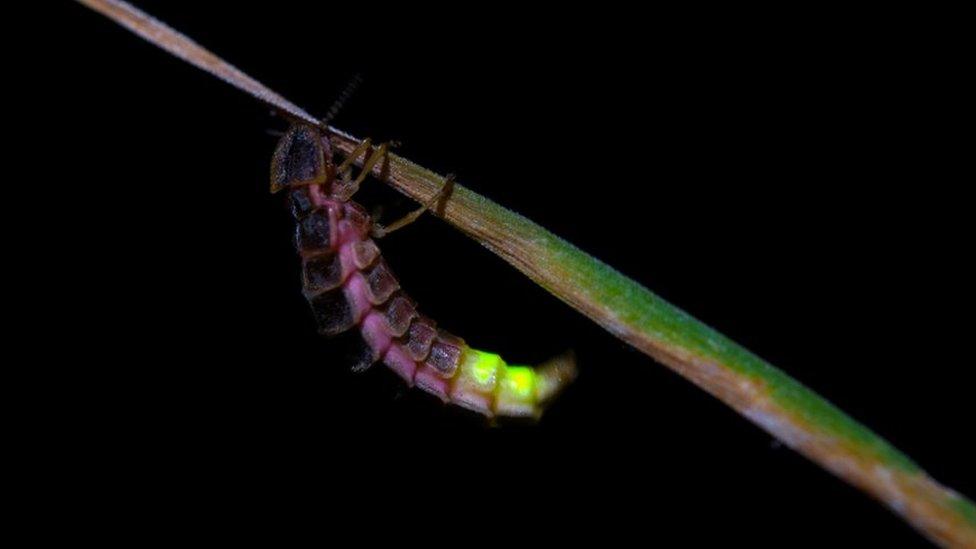Ben Goldsmith hopes to 'wild' his Somerset farm
- Published
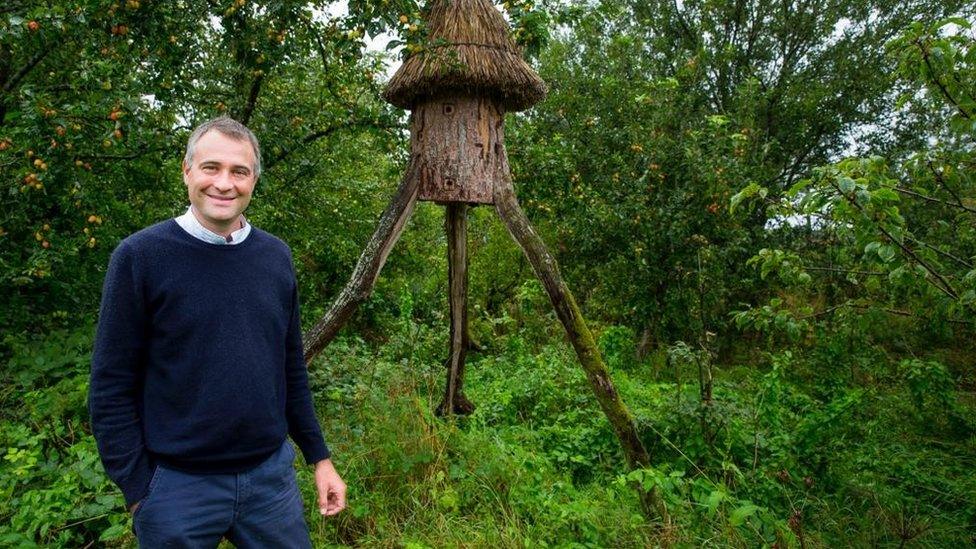
Ben Goldsmith is inspired by the rewilding work at the Knepp Castle estate
A wilding enthusiast hopes to transform his farm into a wild habitat so animals can roam free - despite local concerns.
Ben Goldsmith wants to bring beavers, wildcats, pigs and native cattle to his Somerset farm.
He said: "We want to achieve the kind of species-rich, shape-shifting scrubby wood pasture environment that once blanketed much of western Britain."
Local farmers have worried animals will break through enclosures after red deer escaped from his farm in the spring.
Wilding is returning an environment back to its natural state and is something Mr Goldsmith said he wanted to achieve in the next four years.
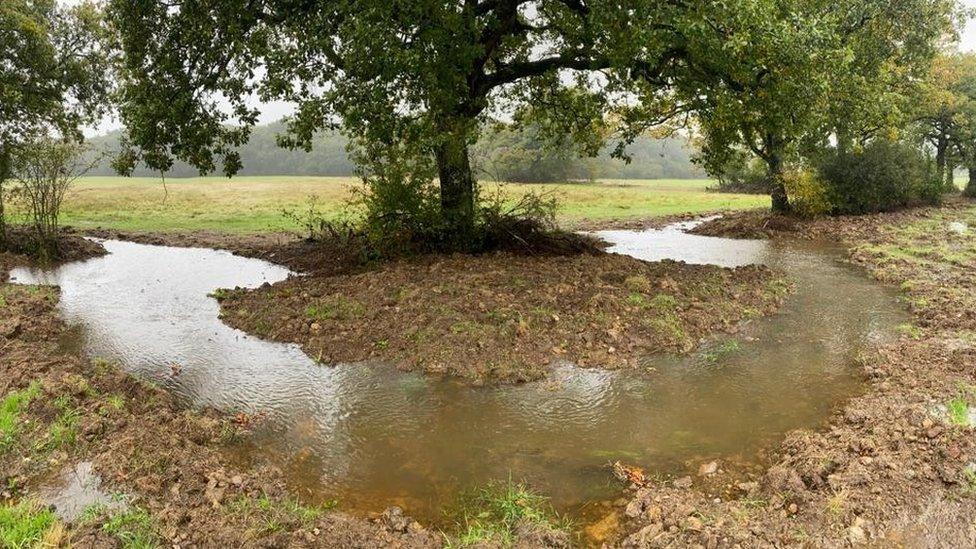
The River Frome has been re-channelled across Mr Goldsmith's farm
Mr Goldsmith, who owns the 300-acre Canwood Farm, near Bruton in Somerset, is a financier and the son of late billionaire financier Sir James, and also holds a non-executive director role with Defra.
In July, he bought 32 red deer as part of an "ecology experiment" but they escaped from an "inadequately fenced woodland enclosure", he said.
"I think they (his neighbours) were well-justified to be unhappy with this and I have apologised to those neighbours," he added.
But one of those neighbours, tenant dairy farmer, Nick Hutton, said: "He has always been apologetic but he hasn't taken any measures in order to curtail the releases he made.
"He claims they are wild and running free and hopes they disperse into the environment.
"The roe and fallow happily homed on our land have now been displaced and horse riders have been concerned about massive red deer... when you get animals not used to giant red deer, it spooks them a bit."
Deer droppings had also ruined grass he was growing as winter feed for his cattle, Mr Hutton said.
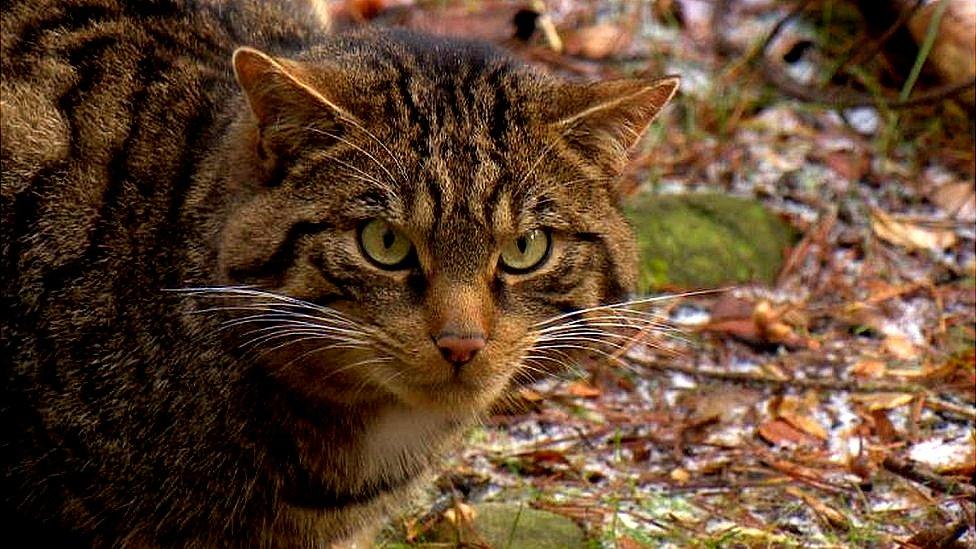
Ben Goldsmith and Derek Gow are hoping to eventually bring wildcats to Somerset
He said he and other local landowners and farmers wanted be consulted before Mr Goldsmith began his projects.
"It shows a total disregard for his neighbours," Mr Hutton added.
'Ribbon wetland'
Despite these difficulties, Mr Goldsmith said he had worked with neighbours to create a wetland habitat along part of the River Frome.
"What we've done is filled in the artificially straightened culvert that ran along the bottom of the valley and have re-meandered the stream as it once was.
"We're recreating this ribbon wetland through about half a mile of valley bottom along our farms."
Greater Tussock-sedge, external will also be planted to build up vegetation.
Next year, depending on the suitability of the boggy areas, water voles will be released.
This is being done by wildlife ecologist Derek Gow, who has also been breeding glow-worms, hoping to build up a colony big enough to release them in four years' time.
"These tiny little flickering insects used to be a real feature of long summer nights," Mr Gow said.
"They are now incredibly rare and incredibly fragmented simply because we tidied the habitat up to the point where they can't exist anymore."
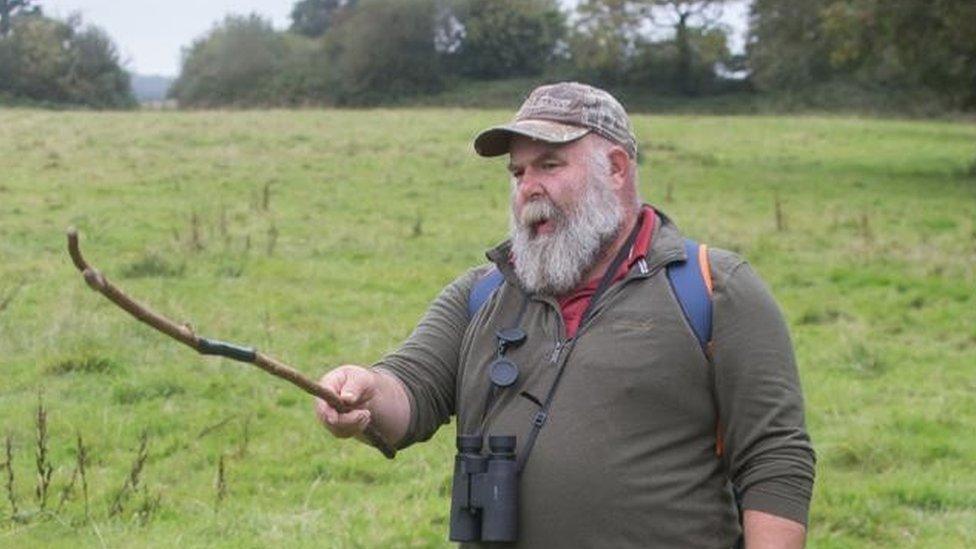
Wildlife ecologist Derek Gow is helping to bring in glow worms and wildcats to the Somerset farm
Mr Goldsmith said he had been inspired by work done at Knepp Castle in Sussex and wanted to recreate it in Somerset by re-introducing longhorn cattle, sheep, pigs and ponies.
Storks and wildcats brought in from Scotland may also feature in the landscape, they said.
"Wild cats will hunt voles and mice through the forest, so they are not a terrifying predator," Mr Gow said.
"The wildcats will not be released next year because we simply won't have enough for a year or two to make release of this species possible in England, but we're starting to work towards that now."
The wilding movement has its critics, with some people concerned about the effect it had on the countryside.
A National Farmers' Union spokesperson said: "Any species introduction, particularly if it has not been in this country for hundreds of years, can have a massive impact on the many benefits that the countryside and farming delivers.
"This potential impact needs to be fully understood before any reintroduction can be considered."
But Mr Gow said Mr Goldsmith's radical approach was needed and showed "incredible foresight".
"People that just want to see things getting better.
"They've had enough of talk and what they want to see now is action," he said
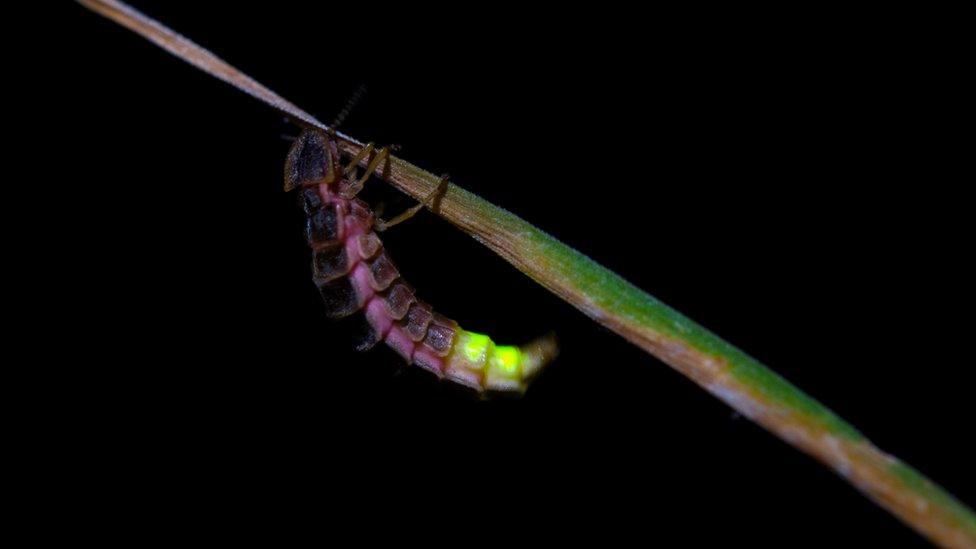
Glow worms are being bred in an effort to build up enough numbers to release at Canwood Farm
- Published20 August 2020
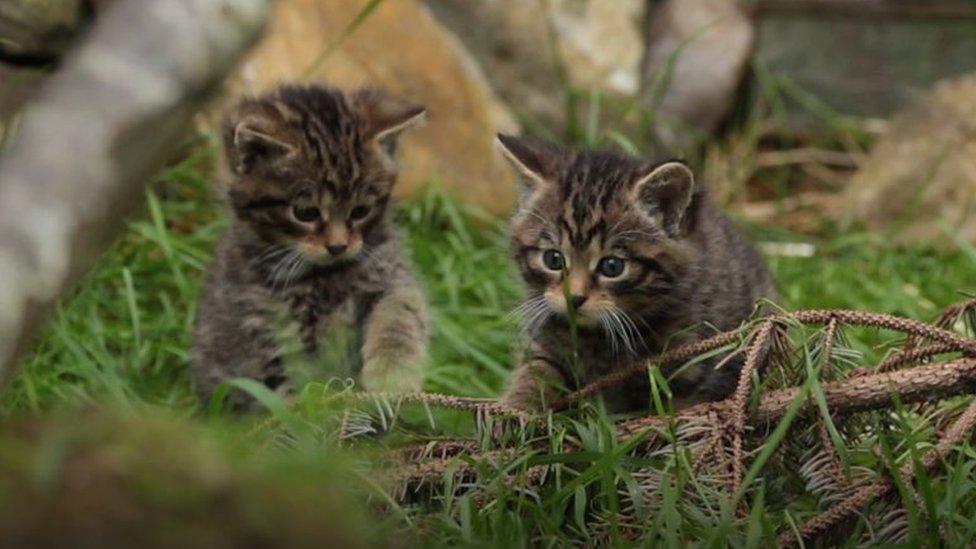
- Published12 June 2020
